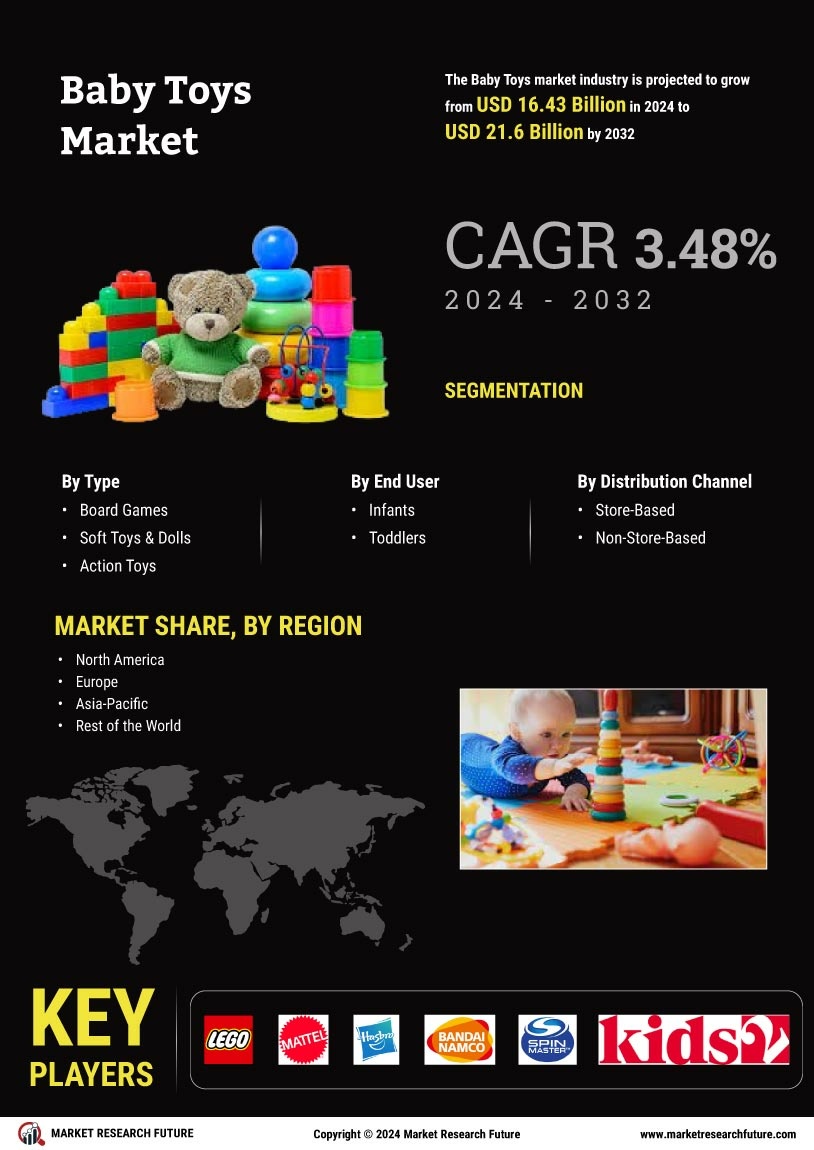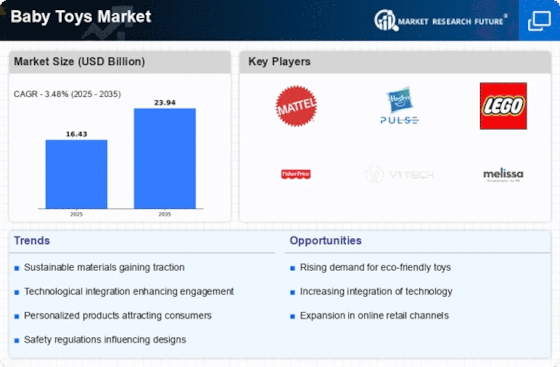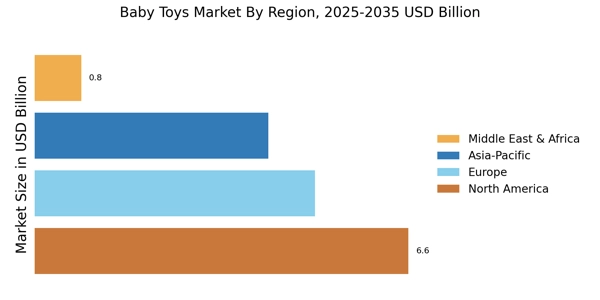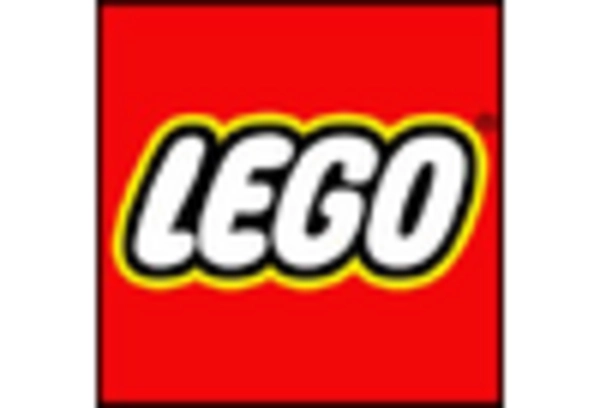Rising Birth Rates
The baby toys Market appears to be positively influenced by rising birth rates in various regions. Increased birth rates lead to a higher demand for baby products, including toys. According to recent data, certain regions have experienced a notable increase in birth rates, which correlates with a growing population of infants and toddlers. This demographic shift suggests that manufacturers in the Baby Toys Market may need to scale production to meet the anticipated demand. Furthermore, as families expand, the need for diverse and engaging toys becomes more pronounced, driving innovation and variety in the market. The interplay between birth rates and consumer spending on baby toys indicates a robust growth trajectory for the industry, as parents are likely to invest in quality toys that support their children's development.
Increased Parental Spending
In recent years, there has been a discernible increase in parental spending on baby products, particularly in the Baby Toys Market. Parents are increasingly willing to invest in high-quality, safe, and educational toys for their children. This trend is supported by data indicating that consumer expenditure on baby toys has risen significantly, reflecting a shift in priorities towards child development and enrichment. As parents become more informed about the benefits of play in early childhood, they are likely to seek out toys that promote cognitive and physical skills. This heightened spending behavior not only boosts sales within the Baby Toys Market but also encourages manufacturers to innovate and diversify their product offerings to cater to discerning consumers.
Technological Advancements in Toys
Technological advancements are significantly impacting the Baby Toys Market, as innovative features are increasingly integrated into toys. The rise of smart toys, which incorporate interactive elements and connectivity, is reshaping consumer expectations. Data suggests that the market for tech-enabled toys is expanding rapidly, with parents showing a preference for products that offer educational content and interactive experiences. These advancements not only enhance playtime but also provide opportunities for learning and engagement. As technology continues to evolve, the Baby Toys Market is likely to see further integration of digital elements, appealing to tech-savvy parents and children alike. This trend may also drive competition among manufacturers to develop cutting-edge toys that stand out in a crowded marketplace.
Growing Awareness of Child Development
The Baby Toys Market is experiencing growth driven by a heightened awareness of child development among parents and caregivers. Research indicates that play is crucial for cognitive, social, and emotional development in early childhood. As a result, parents are increasingly seeking toys that are not only entertaining but also educational. This trend has led to a surge in demand for toys that promote skills such as problem-solving, creativity, and motor skills. Manufacturers in the Baby Toys Market are responding by creating products that align with developmental milestones, thereby enhancing their appeal to parents. The emphasis on developmental benefits is likely to continue shaping the market, as more families prioritize toys that contribute positively to their children's growth.
Sustainability Trends in Toy Production
Sustainability trends are becoming increasingly relevant in the Baby Toys Market, as consumers show a growing preference for eco-friendly products. Parents are more conscious of the environmental impact of their purchases, leading to a demand for toys made from sustainable materials and ethical production practices. Recent data indicates that a significant portion of consumers is willing to pay a premium for toys that are environmentally friendly. This shift is prompting manufacturers to adopt sustainable practices, such as using recycled materials and reducing plastic waste. The emphasis on sustainability not only aligns with consumer values but also positions brands favorably in a competitive market. As awareness of environmental issues continues to rise, the Baby Toys Market is likely to see a sustained focus on sustainable product offerings.

















